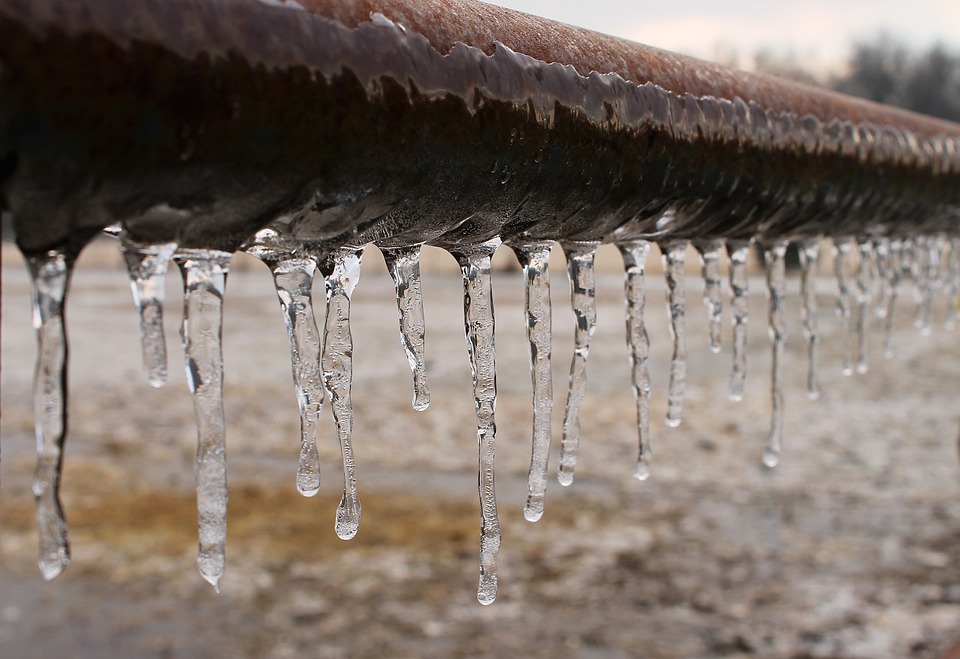Avoid Frozen Plumbing in Cold Weather: Pro Strategies
Avoid Frozen Plumbing in Cold Weather: Pro Strategies
Blog Article
Do you find yourself looking for selective information around Helpful Tips to Prevent Frozen Pipes this Winter?

Cold weather can damage your plumbing, particularly by freezing pipelines. Below's exactly how to prevent it from taking place and what to do if it does.
Intro
As temperatures decrease, the threat of icy pipes increases, potentially causing pricey repair services and water damages. Comprehending exactly how to avoid icy pipes is important for property owners in cold environments.
Avoidance Tips
Protecting vulnerable pipelines
Cover pipelines in insulation sleeves or make use of warmth tape to shield them from freezing temperature levels. Concentrate on pipes in unheated or outside areas of the home.
Home heating strategies
Keep interior areas appropriately warmed, particularly locations with pipes. Open up closet doors to allow cozy air to distribute around pipes under sinks.
Just how to identify icy pipes
Look for decreased water circulation from faucets, uncommon smells or noises from pipes, and noticeable frost on revealed pipes.
Long-Term Solutions
Architectural modifications
Take into consideration rerouting pipes away from exterior walls or unheated areas. Add extra insulation to attic rooms, cellars, and crawl spaces.
Updating insulation
Buy high-grade insulation for pipelines, attics, and walls. Appropriate insulation assists preserve constant temperature levels and minimizes the danger of frozen pipelines.
Securing Outdoor Pipes
Garden hoses and exterior faucets
Separate and drain garden pipes before winter. Mount frost-proof spigots or cover outside taps with shielded caps.
Recognizing Icy Pipelines
What triggers pipes to ice up?
Pipelines freeze when subjected to temperature levels listed below 32 ° F (0 ° C) for expanded periods. As water inside the pipes ices up, it expands, putting pressure on the pipe walls and potentially creating them to rupture.
Risks and damages
Frozen pipes can bring about supply of water disturbances, home damages, and costly repair services. Ruptured pipes can flood homes and cause comprehensive structural damages.
Indicators of Frozen Water Lines
Determining frozen pipes early can stop them from rupturing.
What to Do If Your Pipes Freeze
Immediate activities to take
If you presume frozen pipelines, keep faucets open up to eliminate pressure as the ice thaws. Utilize a hairdryer or towels soaked in warm water to thaw pipes gradually.
Conclusion
Protecting against frozen pipelines requires aggressive measures and fast responses. By comprehending the causes, indications, and safety nets, property owners can secure their pipes during cold weather.
6 Proven Ways to Prevent Frozen Pipes and Protect Your Home
Disconnect and Drain Garden Hoses
Before winter arrives, start by disconnecting your garden hoses and draining any remaining water. Close the shut-off valves that supply outdoor hose bibs and leave the outdoor faucet open to allow any residual water to drain. For extra protection, consider using faucet covers throughout the colder months. It’s also important to drain water from any sprinkler supply lines following the manufacturer’s directions.
Insulate Exposed Pipes
Insulating your pipes is an effective way to prevent freezing. Pipe insulation is readily available at home improvement stores and is relatively inexpensive. Pay close attention to pipes in unheated areas such as the attic, basement, crawl spaces, or garage. Apply foam insulation generously to create a buffer against the cold. You can also wrap your pipes in heat tape or thermostat-controlled heat cables for added warmth.
Seal Air Leaks
Inspect your home for any cracks or openings that could let in cold air. Seal any holes around the piping in interior or exterior walls, as well as the sill plates where your home rests on its foundation. Additionally, make sure to keep your garage door closed unless you’re entering or exiting. Leaving it open creates a significant air leak that can lead to frozen pipes.
Allow Warm Air Circulation
During cold snaps, it’s essential to allow warm air to circulate evenly throughout your home. Leave interior doors ajar to promote better airflow. Open kitchen and bathroom cabinets to help distribute heat consistently around the rooms. If you have small children or pets, be sure to remove any household chemicals or potentially harmful cleaners from open cabinets for safety.
Let Faucets Drip
A small trickle of water can make a big difference in preventing ice formation inside your pipes. When temperatures drop significantly, start a drip of water from all faucets served by exposed pipes. This continuous flow helps prevent the water from freezing. Additionally, running a few faucets slightly can relieve pressure inside the pipes, reducing the chances of a rupture if the water inside does freeze.
https://choateshvac.com/6-proven-ways-to-prevent-frozen-pipes-and-protect-your-home/

Do you appreciate reading about Winter Plumbing Precautions: Preventing Frozen Pipes? Give feedback down the page. We will be delighted to see your insights about this blog. We are looking forward that you visit us again in the future. Are you aware of another individual who is truly interested in the subject? Feel free to promote it. We value reading our article about How to prepare your home plumbing for winter weather.
See Availability Report this page